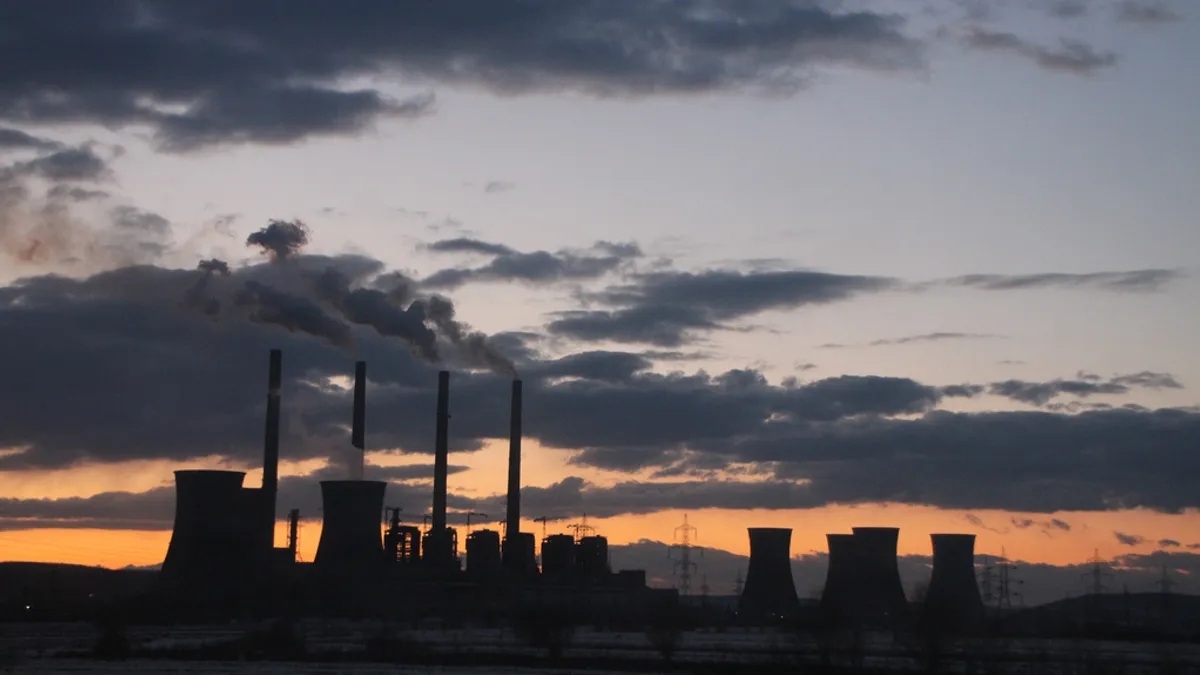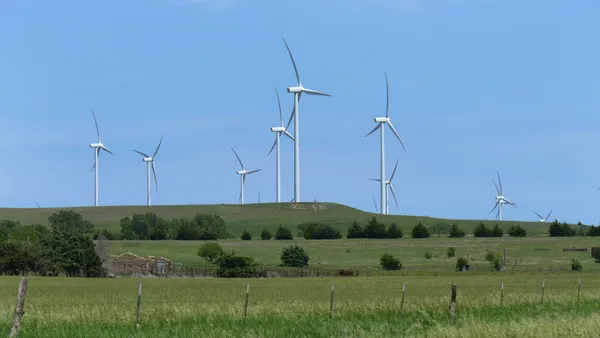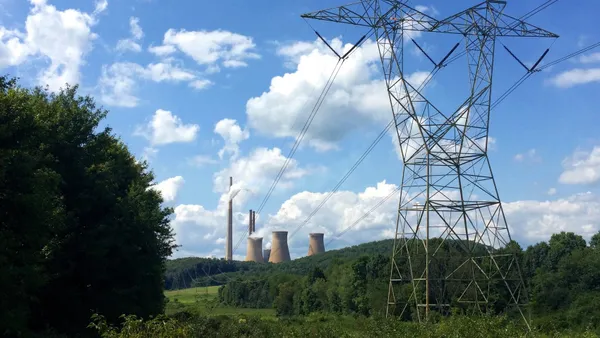Dive Brief:
- The Associated Press reports that President Trump, in private conversations with executives of Murray Energy Corp. and FirstEnergy Solutions Corp., committed to evoking emergency powers in the Federal Power Act to block the closure of any coal power plants for two years.
- Trump ultimately declined to take the step, despite promises. Both the White House and DOE have confirmed to the AP that Trump was considering using a provision of the Federal Power Act to institute a two-year moratorium on coal plant closures. The power is typically used only in times of crisis, like war or a natural disaster.
- Despite the White House's pushback against a coal industry request, Trump has been working to aid the industry. He has pulled the United States out of the United Nations Paris climate accord and is working to roll back or replace numerous Obama-era protections that the coal industry blamed for their demise.
Dive Insight:
There are several takeaways from Associated Press' story, including insight into coal industry lobbying,Trump's habit of making casual promises and the extreme market measures that are potentially on the table.
But while the President has promised to support the coal industry, there are apparently limits to how far he will go. And in light of DOE's delayed grid reliability study, an agency spokesperson's comment that the current situation "does not warrant" the extreme intervention takes on new weight.
News of the request, and President Trump's rejection came after AP acquired letters from Murray Energy to the White House, detailing the alleged promise (that part, federal officials would not confirm). It's unclear, based on this AP report, how the Trump administration will address West Virginia Gov. Jim Justice's request for federal subsidies to boost Appalachian coal use. And it also casts doubt over whether or not the anticipated grid study will advantage coal.
In April, Perry ordered a review of the nation's power grid to determine whether intermittent resources like wind and solar are pushing baseload power generators offline — and whether that threatened power reliability. Last month, a leaked copy of the study concluded renewable energy is not threatening electric reliability.
The release of the DOE's review has been delayed and is widely-anticipated. DOE's baseload power assessment sparked concern in clean energy circles, with critics worried the outcome was pre-ordained to disadvantage renewable resources and support coal and nuclear generators.
In addition to pulling the country out of the Paris climate accord, Trump has been methodically rolling back environmental rules and is working on a replacement for the Clean Power Plan.
The signature environmental achievement of President Obama, the Clean Power Plan was finalized in 2015 but never went into effect. The Supreme Court stayed the rule in January 2016 until legal challenges concluded. The D.C. Circuit put a 60-day hold on the case in April, and then extended the hold another 60 days earlier this month.
The Department of Interior recently halted a study looking into the possible impacts of mountaintop removal mining on nearby communities. The National Academies of Sciences, Engineering, and Medicine conducted the study and said it was stopped because the DOI launched a review of grants and cooperative agreements in excess of $100,000.















